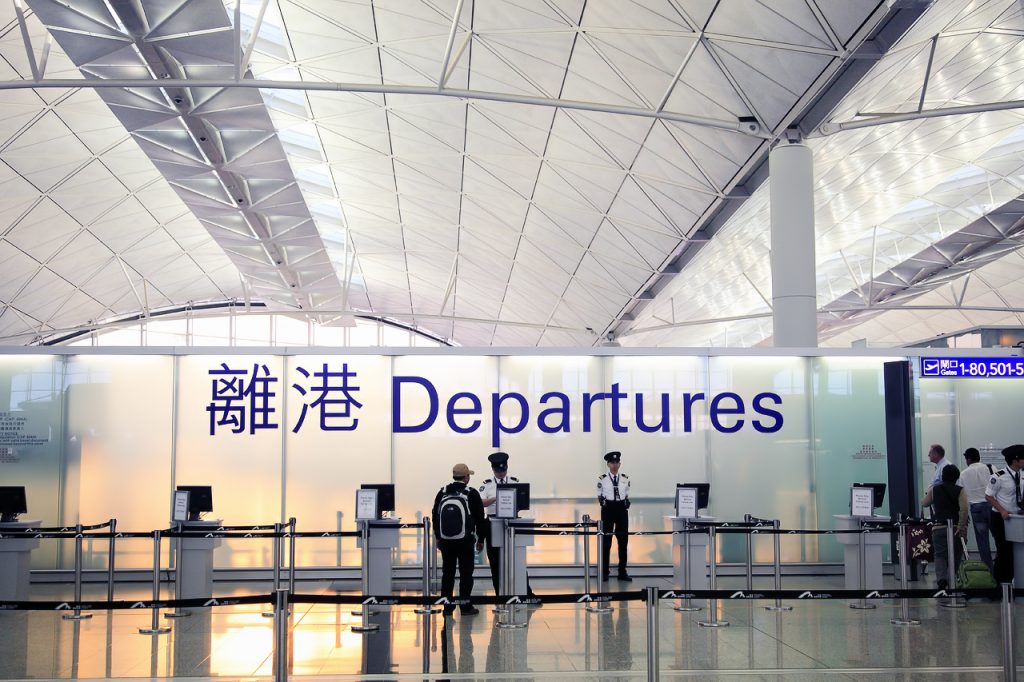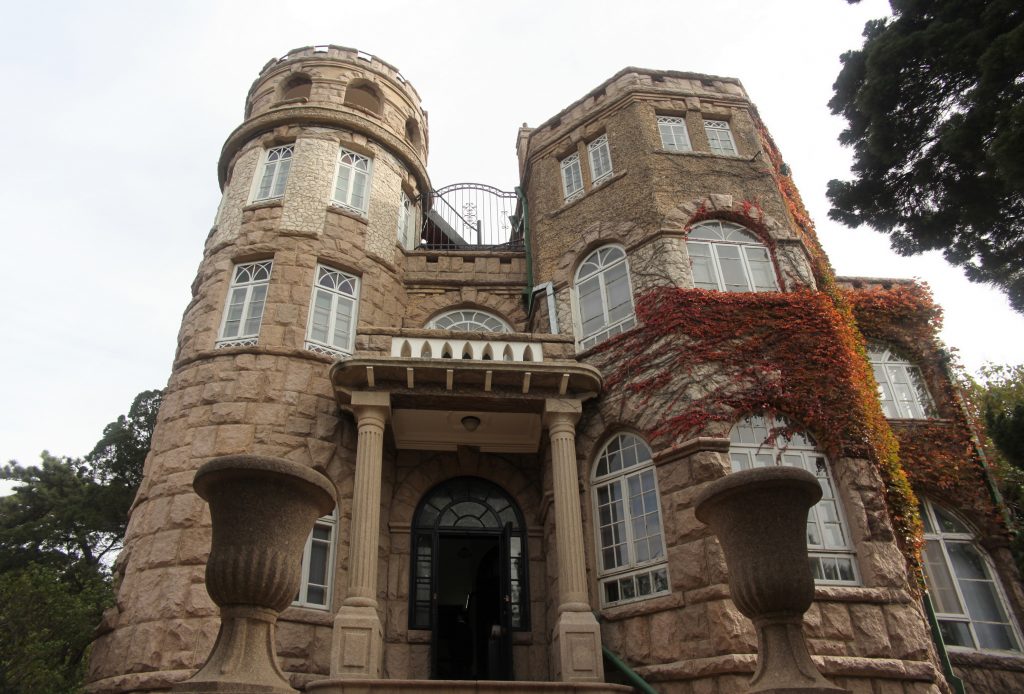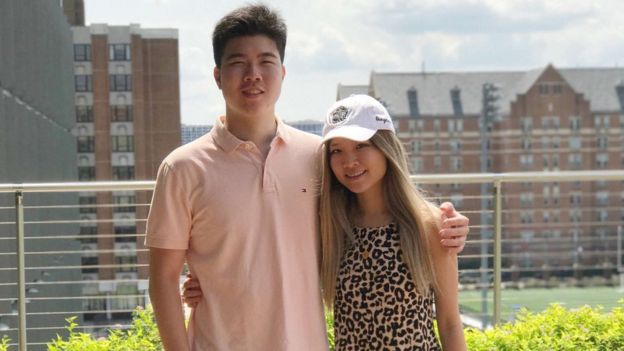<< Read all John Kamm Remembers stories

Before starting my human rights work in China, I prided myself on being a pioneering businessman. In 1979, I placed the first advertisement for Western products in China since the Cultural Revolution. In the same year, I opened two of the first offices in Chinese cities – Guangzhou and Shanghai – outside Beijing, before regulations on foreign offices were enacted. I made some of the first direct sales to Chinese county foreign trade corporations. These were sales of vaccines for pigeons raised in Zhongshan County, Guangdong, in the early 1980s.
I negotiated the first 50:50 joint venture between a Chinese chemical plant and a Western chemical company. The Chinese partner was the Qingdao Chemical Plant and the Western company was Occidental Chemical Company, which I served as vice president of the Asia Pacific region from 1986 to 1991. The product we joint ventured to produce was sodium silicate, a simple, low-risk inorganic chemical with wide applications in the detergent and glass industries.
Mixing Business and Human Rights
The negotiations began in 1988. I made a number of trips to Qingdao, a seaside city known, among other things, as a base for American navy vessels before 1949. (President Carter served there in the years immediately after the Second World War. There was a large Eurasian population in Qingdao as a result of American sailors being stationed there.)
I took the train from Hong Kong to Guangzhou where I boarded a flight to Qingdao on October 14, 1991. I stayed in the Qingdao Flower Stone House, a Gothic-style structure built in 1936 for a wealthy merchant family. Our joint venture negotiating sessions took place at the sodium silicate factory. Between sessions I and my team were hosted to lunch by the Qingdao Economic and Trade Department and to dinner by Qingdao’s mayor.

On October 18, I was invited to give a speech at Qingdao University, where I had been made an honorary professor in April 1990. I spoke on US-China Relations to the university faculty, toured the campus, and was invited to lunch by the university president. At lunch I raised the names of Qingdao students who had been imprisoned for their actions in the May-June 1989 protests. (Shandong courts were known for passing some of the harshest sentences on students and workers.)
I flew to Beijing that evening and settled into the Jianguo Hotel. This was my third visit to Beijing in 1991.
Over the next three days I met with the Ministry of Justice to arrange a visit to Guangdong Meixian Prison; we discussed the fates of several prisoners including Wang Xizhe and Liu Shanshing. After this meeting I met with the head of the Foreign Affairs Department of the Supreme People’s Court to discuss the Lo Haixing and Han Dongfang cases, the situations of imprisoned Catholic clergy, and the abolition of counterrevolutionary crimes.
I then met with the Ministry of Foreign Economic Relations and Trade to discuss prison labor exports by Chinese factories, illegal in the United States. I had broached the topic of prison exports with the Ministry of Justice earlier in the day and been told that the ministry would take action against a Chinese factory that had been caught shipping products to the United States.
I also had a working dinner with the Ministry of Foreign Affairs (MFA) and the State Council.
The Issue of Exit Bans
At my meetings with the Supreme People’s Court, the State Council, and the Ministry of Foreign Affairs, I raised the issue of exit bans placed on relatives of dissidents who had fled China after the events of May and June 1989. I pressed my Chinese counterparts to let them join their family members who were living in exile in the United States.
At the dinner with the MFA and State Council on October 17, 1991, I was advised that several family members had, over the previous month, been allowed to leave China for the United States. I was told I would be given a full accounting the next day. The accounting would be given to me in a fax sent by the Supreme People’s Court to my hotel room.
On October 18, I debriefed the American Embassy and spoke to the American Chamber of Commerce. (It was a cool reception.) Upon my return to the Jianguo, I collected the fax from the Supreme People’s Court in the business center. The fax advised that family members of five leading dissidents had been allowed to leave China in recent weeks. The five dissidents were:
- Chen Kuide (陈奎德), director of the Institute of Culture at the Eastern University of Chemistry;
- Ma Bo (马波), an investigative journalist who wrote under the pen name Lao Gui (老鬼 “Old Ghost”). He had authored Blood Red Sunset, an early example of Cultural Revolution “scar literature;”
- Ruan Ming (阮銘), a researcher at the Central Party School;
- Su Xiaokang (苏晓康), an influential intellectual and scholar who was named as one of China’s seven most-wanted intellectuals involved in the 1989 protests. Su wrote the script for River Elegy, a controversial, six-episode television program that criticized Chinese culture; and
- Yuan Zhiming (远志明), a student protest leader who worked with Su Xiaokang on River Elegy.
Both Su and Yuan were wanted by police when they fled China. I was told by American diplomats that the public security authorities wanted to force exiled dissidents to return to China in a naked display of hostage politics.

The families eventually reunited. The exiles had relocated to the East Coast of the United States. Chen Kuide and Su Xiaokang set up shop in Princeton New Jersey where they became core members of the Princeton China initiative. (At one point, more than 20 Chinese exiles had joined the initiative in Princeton.) Ma Bo became a writer in residence at Brown University. Yuan Ziming also settled in Princeton before becoming a Christian pastor. He stepped down from his ministry in 2015 after being accused of sexual misconduct, an accusation he denied. Ruan Ming was at Columbia University where he continued his research and writing on Chinese leadership politics.
After I received the fax I gave interviews to Jeff Parker of the UPI, Chris Yeung of the South China Morning Post, Cathy Wilhelm of the Associated Press, James Miles of the BBC, and David Holly of the Los Angeles Times. I continued my work with journalists the following day, giving radio interviews to Hong Kong media and filming a segment for ABC News at Ryh Tan, a park in central Beijing. After wrapping up the segment, I left for the airport, where I boarded a flight back to Hong Kong.
The Right to Travel
Article 13 of the Universal Declaration of Human Rights states that “Everyone has the right to leave any country, including his own, and return to his country.” Nevertheless, many countries, including the United States and China, restrict this right for a number of reasons. In the United States, a ban on leaving the country is imposed by a judge in an open hearing and is accomplished by forcing the defendant in a criminal or civil trial to surrender his or her passport.
In China, there is a long history of exit bans placed on both Chinese citizens and foreigners. One of the most famous examples of exit bans were those placed on British bankers who managed the Hong Kong Shanghai Bank and Chartered Bank in Shanghai. The exit bans, which were in place for decades, were accompanied by other restrictions, especially during the Cultural Revolution years, and were supposedly imposed to ensure that the head offices of the banks in London didn’t confiscate the holdings of Chinese banks—an early example of hostage politics. As soon as the bankers’ replacements arrived, the exit bans were lifted.

In another case, that of a Chinese American woman whose father is a Chinese citizen suspected of endangering state security, the exit ban was only lifted after she signed a document pledging not to reveal details of her ordeal. In yet another case, an American of Chinese descent was forced to sell all his assets and hand the proceeds over to the Chinese government before he was allowed to leave the country, poorer but wiser.
While most exit bans are imposed against foreigners of Chinese descent, there are examples of foreigners who are not of Chinese descent living under exit bans in China. Irish businessman Richard O’Halloran has been forbidden to leave China for more than two years over a business dispute involving his employer, even though he was not employed by the firm when the dispute took place. He was advised by the police that if he pays more than $50 million, he can leave. The Irish president raised his plight with Chinese president Xi Jinping, to no avail.
The application of exit bans against American citizens has become a major irritant in US-China relations. The subject is raised as a priority issue in high-level discussions between officials of the two governments, including the March 2021 meeting in Anchorage between senior officials of the Department of State and the National Security Council and their Chinese counterparts.
In December 2020, the Department of State issued a Level Three Travel Advisory – “Reconsider Travel” – for American citizens considering visiting China in large part because of the danger of being subjected to an exit ban. The advisory states that “the PRC government uses exit bans to:
- Compel individuals to participate in PRC government investigations,
- Pressure family members to return to the PRC from abroad,
- Influence PRC authorities to resolve civil disputes in favor of PRC citizens, and
- Gain bargaining leverage over foreign governments.”
Under regulations that take effect on August 1, 2021, Hong Kong’s immigration authorities have the power to bar people from entering and leaving the territory, another sign that the legal systems of both the mainland and Hong Kong are moving closer together.
Listen to the Encounters with China podcast.
Subscribe to receive notifications about new episodes.
Read all John Kamm Remembers stories.
